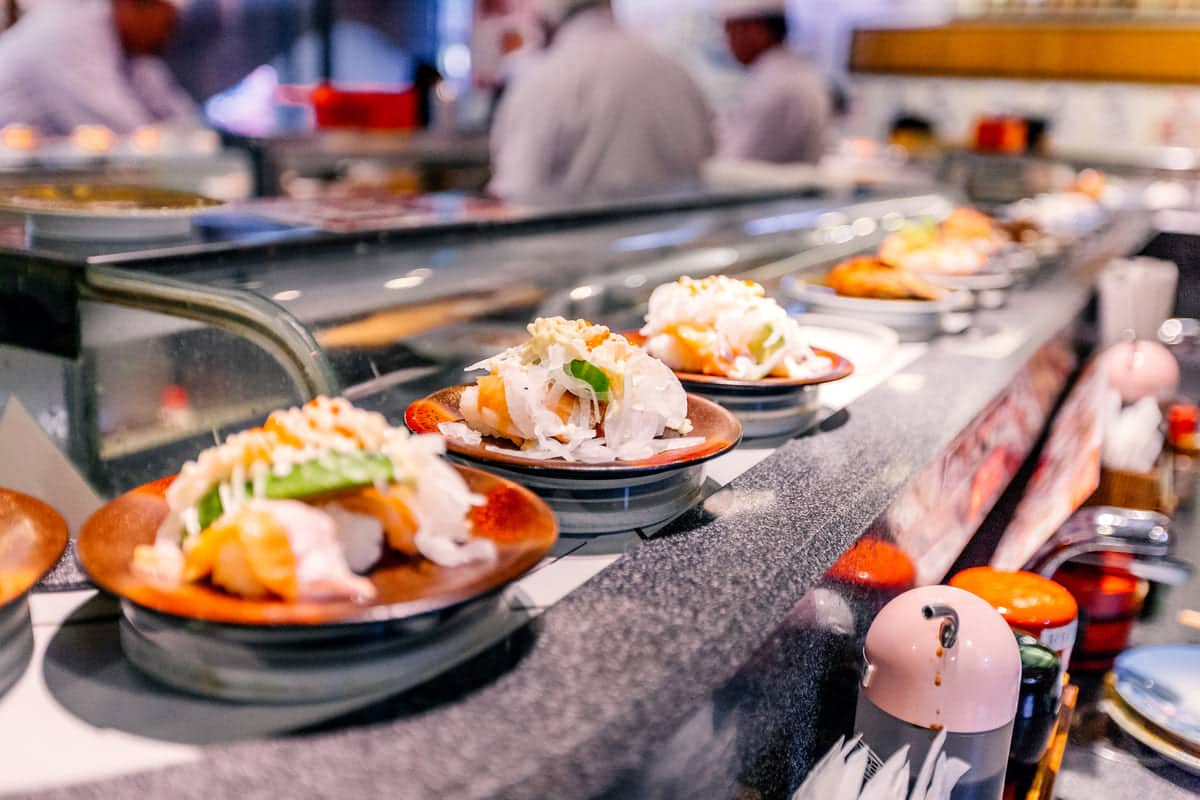Automation and a range of other technology-driven applications have brought about significant changes in various industries, including the hospitality sector. A number of top hotel brands have embraced automation in the hospitality industry to provide greater comfort and convenience and elevate the guest experience. From booking systems to personalized guest services, automation is playing an increasingly vital role in the hospitality industry. If you’re looking to get ahead in hospitality management, it is vital to learn how these new technologies, particularly automation in the hospitality industry, can help boost companies in the tourism and travel sector.
What is automation in the hospitality Industry?
Automation is the use of technology to replace manual tasks, leading to increased efficiency and higher-quality service. In the hospitality industry, automation includes various functions powered by software. These innovations in hotels range from processes that handle reservations and check-ins to implementing effective marketing strategies, for example, smartphone notifications informing guests about room availability.
Advantages of automation in hospitality
Smart automation is transforming the hospitality sector. By integrating automation into hotel operations, service delivery and marketing strategies, hospitality businesses can realize numerous benefits, some of which are detailed below.
Cost-efficiency
By automating tasks such as booking management and front desk services, companies can reduce labor costs. This allows employees to concentrate their energy on areas that increase productivity and improve guest experience.
Enhanced efficiency
Automation can optimize operations, delivering benefits such as streamlining check-ins, managing room service and inventory, and reducing errors.
Seamless customer experience
The opportunity to personalize customer experience for guests is also offered by automation. With the help of mobile apps, guests can effortlessly request room service or housekeeping. By implementing targeted systems, hospitality businesses can ensure accuracy in meeting guest preferences, ultimately enhancing their overall experience.
Increased revenue
Businesses can enhance guest engagement and potentially increase profits by strategically implementing automation. It can also generate additional revenue opportunities by offering upselling options and premium add-ons. Revenue management consultants can advise on automation strategies that customer satisfaction to increase the chances of customers returning, leaving positive online reviews and recommending to others. According to Zendesk, the customer experience influences brand loyalty for more than half of consumers.
Types of automation used in the hospitality industry
Automation can deliver great efficiency in the hospitality industry. By studying tourism and hospitality management you can gain a greater perspective on how automation can be applied. Let’s delve deeper into these possibilities.
Enhancing hospitality with automation
Automation can offer numerous opportunities to finesse hotel operations, enhance guest experience, and contribute to marketing strategies.
Hotel operations automation
Integrating automation into tasks like making reservations and managing inventory can offer a range of advantages. This includes reducing errors, boosting efficiency, and carrying out our seamless maintenance tracking, housekeeping scheduling, and payroll management.
Guest experience automation
Automation can help deliver personalized guest hospitality experiences. This is achieved by utilizing AI-driven concierge recommendations and interactions with our chatbot. Experience and room comfort can also be enhanced with Internet of Things technology.
Guestroom automation
Increase comfort and energy conservation by incorporating smart controls for climate and lighting. In addition, keyless entry systems are convenient and secure for many guests.
Hotel marketing automation
Automated email campaigns and AI-powered social media analytics can enhance targeted guest communication and offer valuable insights into customer sentiment. More importantly, 38.5% of users consider AI-powered email analytics convenient and safe to use.
Automation has undeniably had a significant impact on the hospitality industry. It has not only improved operations and guest satisfaction but also enhanced financial efficiency. If you want to learn more about hotel marketing automation, a marketing degree is a great place to start.
Discover cutting-edge marketing automation and innovations used by industry leaders, along with opportunities to network and gain valuable real-world experience.

How to implement automation in the hospitality industry
Embarking on a journey of digital transformation can be daunting, but a step-by-step approach makes it easier. Let’s explore one such systematic method for implementing automation, from identifying potential areas and selecting suitable technology to employee training. New roles may emerge during this process, which can create career growth opportunities.

Identify areas for automation
The first stage in any automation process involves recognizing which facets of your business could benefit from it. This calls for a detailed analysis at an operational and service level.
On the operations side, redundant tasks that include repetitive manual work are prime candidates for automation. Think about inventory management tasks, for example. On the services side, focus on elements where automation will significantly enhance guest experiences. Enabling online check-ins or automating room temperature according to guest preferences could deliver benefits.
Remember, the goal here is to streamline processes and boost overall efficiency without compromising the all-important customer experience.
Choose the right technology
Once you’ve identified opportunities for optimizing workflow using tech-based solutions, you need to select suitable technology compatible with the specific requirements. The breadth of available options may seem vast and includes property management systems (PMS) handling multiple establishments to niche applications dealing with singular aspects such as reservations or feedback collection.
While deciding upon any given solution, consider usability, scalability, integration with existing systems, and cost-effectiveness. Don’t fixate on features you are unlikely to use. Sometimes simple systems can cater perfectly well to everything you need.
A comprehensive demonstration involving actual users could prove invaluable in making an informed decision, so take time for this crucial step before committing.
Train employees on new technologies
After identifying where and what to automate comes perhaps the most critical stage – readying your workforce for the incoming changes. Successful implementation relies heavily on user adoption rates and employees embracing automated tools. Set reasonable guidelines and explain how the changes can benefit staff.
Begin by introducing new technologies gradually while providing hands-on training sessions supplemented by user-friendly guides or video tutorials where needed. Encourage feedback during early stages as this will help tailor subsequent training models in line with employee needs.
Studying hospitality management
This kind of change doesn’t happen overnight, so patience is key. If you want to learn how best to implement new technology in a hospitality setting, pursuing studies in hospitality can help equip you with the skills and knowledge needed. It’s important to pick a course that has a lot of forward-thinking content, with an emphasis on upcoming technology and digital know-how.
Tap into the benefits of industry insights from leading professionals, rigorous academic discipline and real-world placements with our up-to-date advanced degrees

Challenges of automating the hospitality industry
While automation in the hospitality industry offers many benefits, it also brings challenges in three main areas: cost of implementation, data security concerns and shortage of skilled professionals.
Cost of implementation
One essential aspect to consider is the investment required for automation in hotel operations. This can involve purchasing new technologies and renovating existing systems to support automation capabilities.
Procuring innovative technology tools often demands significant financial funds, but can also involve costs associated with the infrastructure changes needed to accommodate these new systems.
Although costs may seem large initially, there are long-term savings this kind of investment can bring through improved efficiency and reduced labor costs. In a recent survey, close to 60% of workers said if the repetitive manual tasks in their jobs were automated, they could potentially save six or more hours per week. This significant time saving equates to nearly a full workday of productivity.
Data security concerns
There can also be data privacy issues connected with implementing advanced digital solutions in hotels. The integrity of customers’ personal information cannot be compromised and there are some areas of concern, including:
- Fraudulent activities become more sophisticated with technology progression
- Cybersecurity measurements need to be continually updated to keep up with evolving threats
This means persistent scrutiny and constant updates to ensure maximum protection against breaches that could affect both brand reputation and consumer trust.
Lack of skilled professionals
Lastly, there can be a skills gap when operating new tools for automation in hospitality.
Staff members need a high level of competence for handling complex automated equipment or software platforms that regulate various hotel functions. A skilled workforce can also be better at understanding customer preferences from accumulated data, leading to enhanced overall guest experience.
Addressing any skills deficit calls for comprehensive staff training programs that educate them about benefits, functionalities and potential risks accompanied by automated systems usage as well as ways for troubleshooting effectively.
Best practices for automating the hospitality Industry
As you embed automation in hotel industry operations, you should consider the best practice guidelines developed by technology experts and successful business leaders. These strategies not only help smooth out processes but also ensure optimal returns from your investment in the technology.
Create an automated guest journey
An essential practice is to build a comprehensive automated guest journey. It should begin from the initial point of contact, which could be a booking engine or hotel website, and continue through to guest check-out and beyond. Examples of such best practice include:
- Using integrated reservation systems to streamline bookings. Every detail about a client’s stay should be captured
- Investing in self check-in platforms to promote convenience and reduce waiting times
- Giving guests control over room features with smart room automation systems
By implementing this guest journey, you can cultivate loyalty among customers who will appreciate the seamless interaction with your brand and return for most hospitality experiences of excellence.
Embrace tomorrow: The advantages of studying hospitality management
In a world where technology is redefining industries, studying hospitality management can help you understand and implement automation and other technologies in this fast-paced industry. Some of the benefits of studying hospitality are:
- Tech expertise with a human touch: Master cutting-edge technology while honing the personalization skills that define exceptional guest experiences.
- Future-proof your career: Understand and leverage automation to position yourself as an indispensable professional in a rapidly evolving job market.
- Balancing automation with personalized service: Learn the delicate balance between technology and the human touch, creating memorable experiences that go beyond automated processes.
- Diverse career opportunities: Explore a vast array of career paths, from hotel management to event planning and emerging roles in tech-driven startups.
- Leadership for the modern world: Develop leadership skills that bridge the gap between hospitality and technology, making you a sought-after leader in an innovative and adaptive industry.
Embark on a journey that merges technology with the timeless art of hospitality. Studying hospitality management opens doors to a world of possibilities, making you a key player in shaping the future of the industry. Embrace tomorrow with a career that seamlessly integrates innovation and heartfelt hospitality.
Discover best practices in automating the industry from top professionals and put your knowledge to practical use with our professional internships.

Integrate systems and platforms
Streamlined functioning across all hotel operation realms means you need to integrate various systems and platforms. That means you should:
- Consider PMS integrations that blend seamlessly with POS (Point of Sale) systems, housekeeping management software, and automated marketing tools
- Employ APIs (Application Programming Interfaces) that act as bridges between different software systems, enabling instantaneous data exchange
Seamless communication between systems can help drive efficiency by removing opportunities for human error.
Focus on quality assurance
It’s important to maintain high standards while adopting technology since quality assurance significantly influences customer satisfaction levels. To do this, you should:
- Initiate robust training programs for staff members, enabling them to confidently handle new technologies introduced into daily operations
- Trial run any new automation processes before fully implementing them for general use. This is a good way to identify problems preemptively or opportunities for improvement
While incorporating automation in hospitality industry practices can drive increased productivity and reduce labor costs, it’s key to maintaining delivery of excellent service quality.
Conclusion
Automation is transforming the hospitality industry, bringing numerous benefits such as cost reduction, improved efficiency, and digitization of customer experiences. Different forms of automation, including self-check-ins and smart room features, are part of this change.
Successful transitions in automation in the hospitality industry require strategic planning and seamless integration. However, challenges related to costs and security must be addressed with intelligent solutions. Responsible use of technological advancements, particularly automation in the hospitality industry, will reshape the hospitality sector by blending tradition with innovation to provide unmatched guest experiences, while continuous learning and adaptability are key to achieving long-lasting success. By prioritizing automated guest journeys and ensuring quality assurance, hospitality businesses can set new standards. If you want to get ahead in the exciting world of innovation in hotels, get started with a degree from Les Roches
Photo Credit
Main Image: Alexander Spatari/Moment via Getty Images




